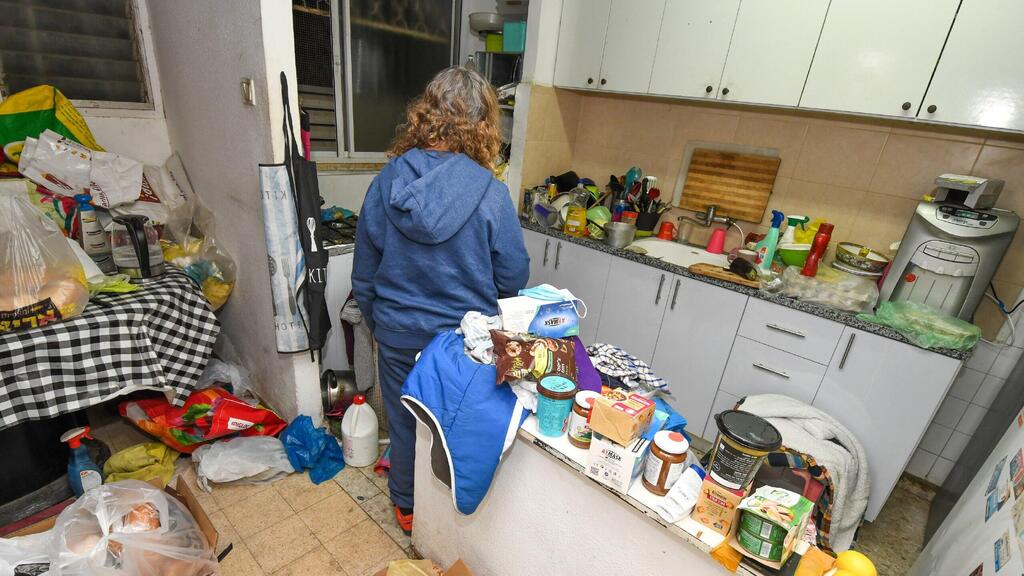No less than 2,627,000 people are living in poverty, according to a report published Monday by Israel's largest anti-poverty non-governmental organization.
The report by the Latet NGO shows that number makes up 27.8% of the entire population of Israel. At least 1,176,000 of that tally are children.
3 View gallery


A woman searches the garbage for food at an Israeli market during the coronavirus pandemic
(Photo: Nadav Abas)
Furthermore, 27.7% (830,000) of households in Israel are reported to be in economic distress, an addition of 131,000 more families compared to pre-pandemic figures.
The report's data indicates the percentage of Israeli households that near poverty stands at 20.1% - compared to 14% before the pandemic. However, there has been a slight decrease in the tally compared to 2021, when that number stood at 23.6%.
In addition, 680,475 (21.1%) of Israeli families live in nutritional insecurity, of which 312,825 (9.7%) live in severe nutritional insecurity.
The data indicates that despite the added pension for the elderly, which was meant to place all senior citizens above the poverty line set by the National Insurance Institute of Israel, 75.6% of the pension-aged public lives in de facto poverty.
The report also shows that 69.4% of senior citizens live in nutritional insecurity, of whom 36.5% are in severe nutritional insecurity. Some 60.9% of seniors say they gave up buying medicines or paying for medical treatments because they simply can't afford them.
"My husband is a disabled IDF veteran, he was hit in the head during operational activity, and I'm dealing with congenital paralysis, we both don't work, living off allowances," said Liraz, a mother of four.
"These allowances are relatively low compared to the cost of living in Israel. I want to help my children, but I am not always able to. The increase in the cost of living in the country affects mostly our ability to buy food. I receive food aid, without it I wouldn't be able to buy food. We face a lot of challenges, but there is almost no help."
The report also points to inequality in educational opportunities. Some 57.5% of families eligible for financial assistance and with children aged 0-3, failed to enroll their kids into an educational framework because they were unable to meet the payment requirements - a rise of 25.5% from 2020.
At least 72.6% said that due to economic difficulties, they were forced to give up the purchase of basic educational equipment and textbooks for their children.
Some 78.6% of children whose families are on welfare were forced to give up extracurricular activities, including school field trips, because their parents were unable to pay for them. Some 38.4% also said that their children had to reduce the size of their meals or had to skip a meal because of the inability to purchase enough food.
Finally, 76.7% of Israelis on welfare suffer from at least one chronic disease, and 68.4% were forced to halt the purchase of medicines or medical care required because they could not pay for it.



